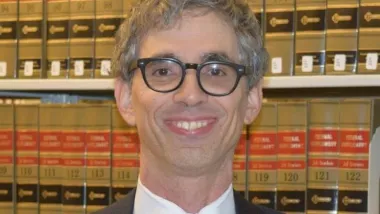The San Jose City Council is considering a proposal to ban plastic bags and most paper bags in supermarkets, out of concerns about the greenhouse gases used to manufacture them and about the waste from discarded bags. But this policy might create as many environmental problems as it solves. In a city without disposable bags, shoppers who seek to buy large amounts of groceries will have to drag around an army of nondisposable containers. For drivers, this is not a big deal. Susie SUV can always find space for dozens of nondisposable bags in her truck. And because Susie’s bags can stay in her truck forever, she will always be able to make impulse purchases without difficulty.
The San Jose City Council is considering a proposal to
ban plastic bags and most paper bags in supermarkets, out of concerns about the greenhouse
gases used to manufacture them and about the waste from discarded
bags. But this policy might create as many environmental problems
as it solves.
In a city without disposable bags, shoppers who seek to buy large
amounts of groceries will have to drag around an army of nondisposable
containers. For drivers, this is not a big deal. Susie SUV can always
find space for dozens of nondisposable bags in her truck. And because Susie's bags
can stay in her truck forever, she will always be able to make impulse
purchases without difficulty.
But pedestrian shoppers will have more trouble dragging around an
armada of bags – both because a pedestrian cannot carry as many bags as
an SUV, and because a pedestrian may not always know in advance when
he/she wants to go shopping.
So in a "no disposables" city, shopping (especially for a family) becames a hassle for pedestrians. If a pedestrian wishes to shop, he/she must limit purchases to the amount of groceries that will fit into the bags he/she can carry to the grocery store, and must remember to bring those bags to the store. Thus, an anti-disposables law widens the "convenience gap" between drivers and pedestrians. (And given the amount of hurdles that car-dependent North America creates for pedestrians, do we really need one more?)
It follows that such laws give consumers yet another incentive to drive rather than walk to the grocery store- or even to drive if there is an outside chance she may
wish to go shopping. Thus, a complete ban on bags encourages driving,
which in turn increases greenhouse emissions and a wide variety of
other environmental ills.
Does this mean that municipalities must choose between pollution from
cars and pollution from bags? Not necessarily. Toronto has created a
middle ground in the bag wars, imposing a 5-cent tax on disposable
bags- enough to allow nondrivers who really need bags to use them, yet
at the same time enough to deter frivolous bag use.
I have lived in Toronto
for three weeks, and find that I still have a few plastic bags (which I
recycle by using them as garbage bags) but use far fewer bags than I once
did. I place small purchases in the tote bag that I use for school
books, but have the option of purchasing plastic bags when I really
need them. And I still get by without a car.

Planetizen Federal Action Tracker
A weekly monitor of how Trump’s orders and actions are impacting planners and planning in America.

Chicago’s Ghost Rails
Just beneath the surface of the modern city lie the remnants of its expansive early 20th-century streetcar system.

Amtrak Cutting Jobs, Funding to High-Speed Rail
The agency plans to cut 10 percent of its workforce and has confirmed it will not fund new high-speed rail projects.

Ohio Forces Data Centers to Prepay for Power
Utilities are calling on states to hold data center operators responsible for new energy demands to prevent leaving consumers on the hook for their bills.

MARTA CEO Steps Down Amid Citizenship Concerns
MARTA’s board announced Thursday that its chief, who is from Canada, is resigning due to questions about his immigration status.

Silicon Valley ‘Bike Superhighway’ Awarded $14M State Grant
A Caltrans grant brings the 10-mile Central Bikeway project connecting Santa Clara and East San Jose closer to fruition.
Urban Design for Planners 1: Software Tools
This six-course series explores essential urban design concepts using open source software and equips planners with the tools they need to participate fully in the urban design process.
Planning for Universal Design
Learn the tools for implementing Universal Design in planning regulations.
Caltrans
City of Fort Worth
Mpact (founded as Rail~Volution)
City of Camden Redevelopment Agency
City of Astoria
City of Portland
City of Laramie





























